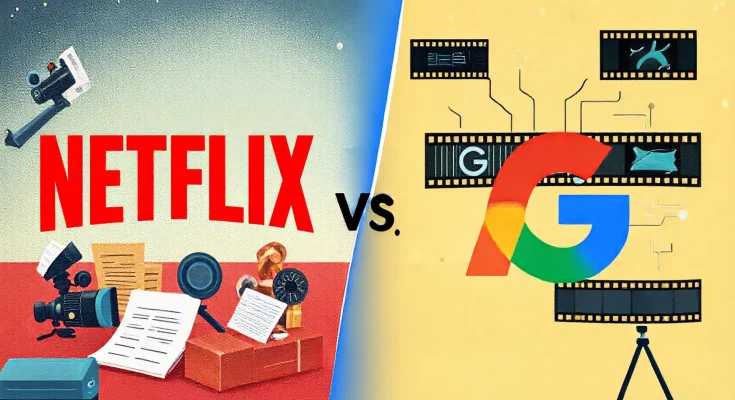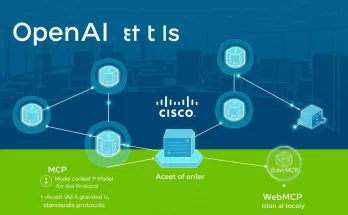Netflix vs. Google AI: A Duel of Innovation
As the demand for high-quality streaming content escalates, technology giants such as Netflix and Google are making significant strides in the world of artificial intelligence. Netflix must remain vigilant with the recent introduction of Google’s new AI-powered moviemaking tool known as Flow. This has raised questions about whether AI will disrupt traditional streaming approaches.
The Emergence of AI in Filmmaking
According to tech visionary Luis von Ahn, who is the CEO of Duolingo, AI poses a considerable threat not only to his company but also to major players like Netflix. During a recent discussion, von Ahn reflected on the potential platform shift instigated by advancements in AI, particularly large language models. He asserted that these developments could allow AI systems to autonomously produce a “perfect movie” at the press of a button.
Understanding Google’s Flow
Unveiled at the Google I/O conference in Silicon Valley, Flow has captivated audiences by demonstrating its capability to create cinematic video from simple text prompts. Powered by Google’s cutting-edge image and video generation models, Imagen 4 and Veo 3, Flow can generate stunning visuals and accompanying audio elements such as sound effects and dialogue.
- Example Usage: A user can describe a scene with characters and dialogue, and Flow translates this into a film clip.
- Editing Features: It allows seamless editing, thus enabling users to modify scenes while maintaining continuity.
Drawbacks and Opportunities for Netflix
While the primary aim of Flow is to empower filmmakers, its implications extend far beyond individual creators. For Netflix and traditional studios, the advent of AI-generated content represents both a challenge and an opportunity:
- Accelerated Production: AI tools can significantly lower production time and costs, fostering quicker content development.
- Increased Competition: The barrier to entry for content creation is falling, leading to a potential influx of offerings from smaller studios, individual creators, and even consumers.
- Hyper-Personalization: Future advancements could allow viewers to dictate film preferences in real-time, enabling on-demand content generation in their desired genre or theme.
Strategic Considerations for Established Players
In light of these developments, Netflix must re-evaluate its strategies. Google’s CEO Sundar Pichai previously alluded to Google contemplating acquiring Netflix. However, with advancements in AI, such mergers may no longer be necessary as Google continues to develop its capabilities in content creation.
The Future of Storytelling
It is essential to consider that AI’s role in filmmaking is not merely about replacing human creativity; it is redefining it. Historical precedents in other industries, including music and software coding, demonstrate that while AI democratizes creativity, it could also reshape traditional business models.
Netflix and similar giants need to adapt to the evolving industry landscape. Whether through collaborative efforts with AI technologies or restructuring their content production models, the survival of these platforms hinges on their ability to embrace change.
Ride the Wave or Be Overtaken
AI is already making waves in filmmaking, and the pressing question is whether traditional players like Netflix can ride this wave or if they will be overwhelmed by it. The emergence of algorithmically generated storytelling is not just a future possibility—it is quickly becoming a present reality. How industry giants react to this transformation will determine their position in the new era of cinema.



